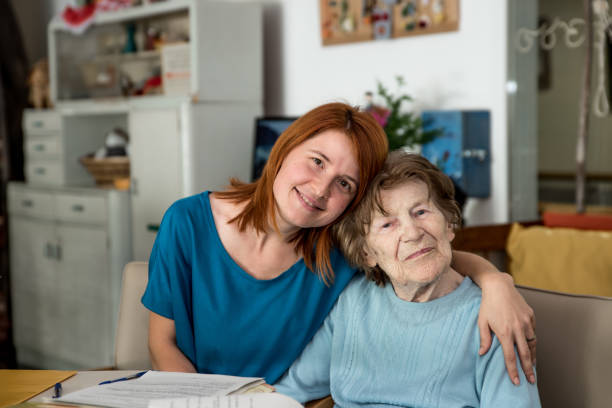Understanding Person-Centered Care
In elderly care, person-centered care is a widely recognized approach that focuses on respecting the individuality of older adults and considering their preferences, needs, and values in decision-making processes (Springer Link). This approach aims to provide care that is tailored to the specific needs and desires of each person, recognizing them as unique individuals with their own life experiences and preferences.
The Importance of Individuality
Respecting the individuality of older adults is crucial in person-centered care. Each person has a unique set of experiences, values, and preferences that shape their identity. By acknowledging and valuing these individual characteristics, caregivers can establish a more meaningful and respectful relationship with older adults. This recognition of individuality helps to foster a sense of dignity, autonomy, and self-worth, enhancing the overall well-being of older adults.
Respecting Personal Preferences
In person-centered care, it is essential to respect the personal preferences of older adults. This includes considering their likes, dislikes, and choices when providing care and making decisions. By involving older adults in decision-making processes, their autonomy and independence are upheld, enabling them to actively participate in shaping their own care.
Respecting personal preferences also means understanding that older adults have the right to make choices in their lives. Whether it’s about daily routines, activities, or even the way they prefer to receive care, their preferences should be acknowledged and honored. This approach empowers older adults and promotes a sense of control and agency, which is vital for their overall well-being.
By understanding the importance of individuality and respecting personal preferences, caregivers can provide person-centered care that truly meets the unique needs and desires of older adults. This approach leads to positive outcomes, such as improved quality of life, higher levels of satisfaction with care, and enhanced psychological well-being for older individuals.
Benefits of Person-Centered Elderly Care
Person-centered care has gained recognition as a crucial approach in improving the quality of life and well-being of older adults, placing a strong emphasis on respecting individuality and personal preferences. By adopting this approach, caregivers can provide tailored care that meets the specific needs and desires of each individual. Let’s explore two key benefits of person-centered elderly care: improved quality of life and enhanced psychological well-being.
Improved Quality of Life
Research has shown that person-centered care in elderly settings leads to positive outcomes, including improved quality of life for older individuals. By focusing on the unique needs and preferences of each person, caregivers can create an environment that promotes independence, autonomy, and a sense of purpose.
Person-centered care recognizes the importance of maintaining older adults’ dignity and respect, allowing them to make choices about their daily routines, activities, and care options. This individualized approach enhances the overall well-being of older adults, fostering feelings of empowerment and control over their lives.
By tailoring care to the preferences of the individual, person-centered care also ensures that older adults receive the support they need while maintaining their personal identity and sense of self. This approach can help prevent feelings of helplessness, isolation, and depression, leading to a higher overall quality of life for older individuals.
Enhanced Psychological Well-being
Person-centered care also plays a vital role in promoting the psychological well-being of older adults. By recognizing and respecting their individuality and personal preferences, caregivers can create a sense of belonging and emotional security. This, in turn, fosters positive mental health outcomes.
When older adults feel heard, understood, and valued, they are more likely to experience increased self-esteem, improved mood, and reduced levels of anxiety and depression. Person-centered care acknowledges the importance of building meaningful relationships between caregivers and older adults, establishing trust, and promoting open communication.
Additionally, person-centered care emphasizes the involvement of older adults in decision-making processes regarding their care. This active participation empowers them to maintain a sense of control and autonomy, leading to a greater sense of satisfaction and fulfillment.
By embracing person-centered care, caregivers can enhance the psychological well-being of older individuals, promoting a positive and nurturing environment that supports their emotional needs.
Incorporating person-centered care principles into elderly caregiving can have a profound impact on the lives of older adults. By respecting their individuality, choices, and preferences, caregivers can create an environment that upholds their dignity, supports their well-being, and fosters a higher overall quality of life.
Implementing Person-Centered Care
To create a more respectful and individualized care environment for elderly residents, implementing person-centered care practices in nursing homes requires a shift in organizational culture and a commitment to training staff in person-centered approaches. This ensures that the unique needs and preferences of each individual are respected and prioritized.
Shifting Organizational Culture
Shifting the organizational culture is a fundamental step in implementing person-centered care. It involves creating an environment where the focus is on the individual and their well-being. This cultural shift requires a change in mindset and values, with a strong emphasis on treating each resident with dignity and respect.
Organizations can promote person-centered care by establishing policies and procedures that reflect the principles of individuality and respect. Leadership plays a crucial role in modeling person-centered values and encouraging staff to embrace this approach. By fostering a culture that values and supports person-centered care, organizations can create an environment where residents feel heard, understood, and empowered.
Training Staff in Person-Centered Approaches
Training staff in person-centered approaches is essential to ensure the successful implementation of person-centered care. This training empowers staff to see seniors as unique individuals with their own life stories, preferences, and needs. By developing a deeper understanding of each resident, caregivers can provide more personalized and meaningful care.
Person-centered care training equips staff with the skills and knowledge needed to build strong relationships with the elderly. It emphasizes active listening, empathy, and effective communication techniques. Through this training, caregivers learn to engage residents in decision-making processes, encouraging their active involvement in their own care.
Additionally, training caregivers in specialty areas such as Alzheimer’s care and fall prevention (24 Hour Cares) ensures that they are equipped to provide the best care to older adults. This specialized knowledge enables caregivers to address the specific needs and challenges of elderly residents, promoting their overall well-being.
Confidentiality and trust are vital aspects of person-centered care. Caregivers must maintain confidentiality to establish trust with the client and their family, protecting private information about the patient or their family. Effective communication skills are also crucial for caregivers, especially in situations where clients may have difficulty expressing their needs. Caregivers must be able to communicate clearly and maintain open lines of communication with the patient and their families.
By shifting the organizational culture and providing comprehensive training in person-centered approaches, nursing homes can create an environment that respects and celebrates the individuality of each elderly resident. This fosters a higher quality of care and enhances the overall well-being and satisfaction of the residents.
Key Principles of Person-Centered Care
Person-centered care is a widely recognized approach in elderly care that focuses on respecting the individuality of older adults, considering their preferences, needs, and values in decision-making processes (Springer). This approach recognizes that each person is unique and has the right to make choices in their life, promoting a sense of dignity and autonomy in their care.
Valuing Individual Perspectives
One key principle of person-centered care is valuing individual perspectives. This involves recognizing the older person as an individual with unique life experiences, preferences, and values. By taking the time to understand their perspective, caregivers can develop a more comprehensive understanding of their needs and tailor care accordingly.
Valuing individual perspectives also means actively listening to the older person and involving them in discussions about their care. This collaborative approach fosters a sense of empowerment and respect, ensuring that their voice is heard and their preferences are taken into account (PubMed). It is essential for caregivers to create an environment where older adults feel comfortable expressing their thoughts and concerns, and where their opinions are valued and respected.
Active Involvement in Decision-making
Another crucial principle of person-centered care is active involvement in decision-making. This principle recognizes that older adults should have the opportunity to actively participate in decisions about their care, to the extent that they are able and willing to do so.
In order to involve older adults in decision-making, caregivers should provide them with comprehensive and understandable information about their options and the potential outcomes of each choice. This enables them to make informed decisions that align with their goals, values, and preferences.
Active involvement in decision-making not only respects the autonomy of older adults, but it also promotes a sense of ownership and control over their care. This can have a positive impact on their well-being, as it empowers them to actively engage in their own health and promotes a sense of dignity and self-worth.
By valuing individual perspectives and actively involving older adults in decision-making, person-centered care creates a supportive and empowering environment that respects their autonomy and individuality. This approach acknowledges the importance of recognizing the older person as a unique individual and honoring their preferences, needs, and values in the care provided.
Person-Centered Care in Memory Care Settings
When it comes to providing care for individuals with memory-related conditions, person-centered care plays a crucial role in promoting their well-being and preserving their sense of self. In memory care settings, creating supportive environments and recognizing unique identities are essential aspects of person-centered care.
Creating Supportive Environments
In memory care facilities, creating a supportive environment is essential for individuals with memory-related conditions. These environments are designed to promote a sense of belonging and purpose in their daily lives (A Place for Mom). The physical layout of the facility should be dementia-friendly, with clear signage, calming colors, and familiar cues that help residents navigate their surroundings.
Additionally, staff members should receive specialized training in memory care to better understand the unique needs and challenges faced by individuals with memory loss. This training equips them with the skills to provide compassionate and individualized care, while also fostering a sense of security and comfort for residents.
Recognizing Unique Identities
Each person in memory care has a unique identity shaped by their personal history, beliefs, values, and preferences. Recognizing and honoring these individual identities is a key principle of person-centered care (PubMed). Caregivers should take the time to understand the individual’s life story, interests, and cultural background, as this knowledge can guide the development of personalized care plans.
By incorporating familiar routines, activities, and meaningful engagement into daily life, caregivers can help individuals with memory loss maintain a sense of identity and purpose. This might involve reminiscing through photo albums, participating in hobbies, or engaging in activities that align with their past interests and experiences (A Place for Mom).
By creating supportive environments and recognizing the unique identities of individuals in memory care settings, person-centered care enhances their quality of life and promotes a sense of dignity and well-being. It is through these practices that caregivers can truly honor and respect the individuality of each senior, allowing them to maintain their personhood and find joy and meaning in their daily lives.
Respecting Different Approaches to Caregiving
In the realm of caregiving, it is essential to recognize and respect the various approaches individuals take when providing care for their loved ones. Each caregiving situation is unique and complex, influenced by factors such as personal circumstances, available resources, and the specific needs of the care recipient. Avoiding judgement and encouraging supportive communities are key aspects of fostering understanding and empathy.
Avoiding Judgement
Criticism and judgment have no place in the caregiving journey. It is crucial to understand that caregivers make decisions based on their personal circumstances and the well-being of their loved ones. For example, some individuals may choose not to provide hands-on care but still actively participate in their loved ones’ care by managing from a distance and hiring outside help to meet their personal needs. This decision doesn’t diminish their love or commitment to their family members but rather demonstrates their self-awareness about their limitations.
Additionally, caregivers may make significant personal sacrifices, such as leaving their jobs to become full-time caregivers or rearranging their lives to provide care around the clock. These choices have both short- and long-term consequences and should be respected based on individual circumstances. It is important to remember that caregivers are doing their best within their unique situations, and their choices deserve understanding and support rather than judgment.
Encouraging Supportive Communities
Fostering a supportive caregiving community is vital for caregivers. Many caregivers go above and beyond in their roles, facing numerous challenges and often experiencing feelings of isolation and burnout. Encouragement, empathy, and shared experiences can make a significant difference in their well-being.
It is essential to provide encouragement and hope to fellow caregivers, even if one does not fully agree with their choices. Recognize the efforts they put forth and the love and dedication they have for their loved ones. Sharing experiences and stories can help caregivers feel less alone and provide them with valuable insights and strategies. By refraining from judgment and instead offering kindness and empathy, we can create a supportive environment that uplifts and empowers caregivers (AgingCare.com).
In conclusion, respecting different approaches to caregiving is crucial in recognizing the diverse and complex nature of caregiving situations. Avoiding judgement and embracing supportive communities can help caregivers feel understood, validated, and encouraged in their caregiving journey. By fostering understanding and empathy, we can create an environment where caregivers can thrive and provide the best care possible for their loved ones.
Maintaining Respect in Elderly Care
When it comes to elderly care, maintaining respect is of utmost importance in ensuring the well-being and dignity of older adults. Two key aspects of maintaining respect are confidentiality and the characteristics of the caregiver.
Confidentiality and Trust
Confidentiality plays a vital role in establishing trust between caregivers and older adults, as well as their families. Caregivers must maintain confidentiality to protect private information about the patient or their family, fostering an environment of trust and respect. Respecting the confidentiality of personal and medical information is crucial for maintaining the privacy and dignity of the elderly individuals being cared for.
Essential Caregiver Characteristics
To maintain respect in elderly care, caregivers should possess certain essential characteristics. These characteristics contribute to creating an environment that values and respects the autonomy, intelligence, and dignity of older adults.
- Acknowledging Individual Value: Caregivers should recognize that older adults, despite physical changes or health challenges, are still the same individuals with value and intelligence. Encouraging their participation in decision-making, allowing them to engage in activities they love, and actively listening to their thoughts and opinions are ways to demonstrate respect and recognize their autonomy.
- Effective Communication: Listening intently to older adults, paying attention to both verbal and non-verbal communication, is crucial for showing empathy and respect. Caregivers should be patient, as older adults may require more effort to express themselves clearly. This patience and attentive listening can provide insights into their needs and potential health issues (Active Senior Care).
- Preserving Dignity: Caregivers should find ways to help older adults maintain their dignity while assisting with daily activities they may struggle with, such as bathing, dressing, and eating. Encouraging independence whenever possible and respecting their privacy by allowing them to perform tasks themselves enhances their dignity and sense of self-worth.
Research has shown that elderly individuals value respect and dignity in their interactions with caregivers. Upholding the principles of person-centered care, which prioritize autonomy and dignity, is essential for providing the level of respect that older adults deserve.
By maintaining confidentiality and embodying the essential characteristics of a caregiver, it is possible to create an environment that promotes respect and enhances the well-being of older adults. Through these actions, caregivers can ensure that elderly individuals receive the care they deserve while preserving their dignity and autonomy.



